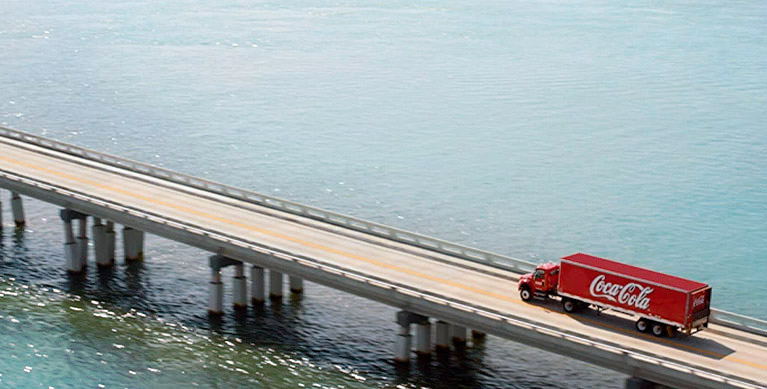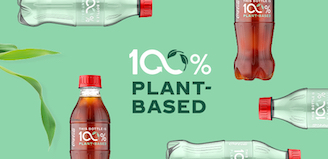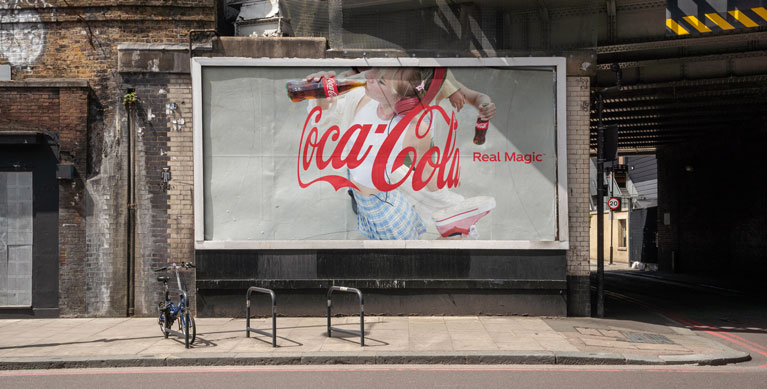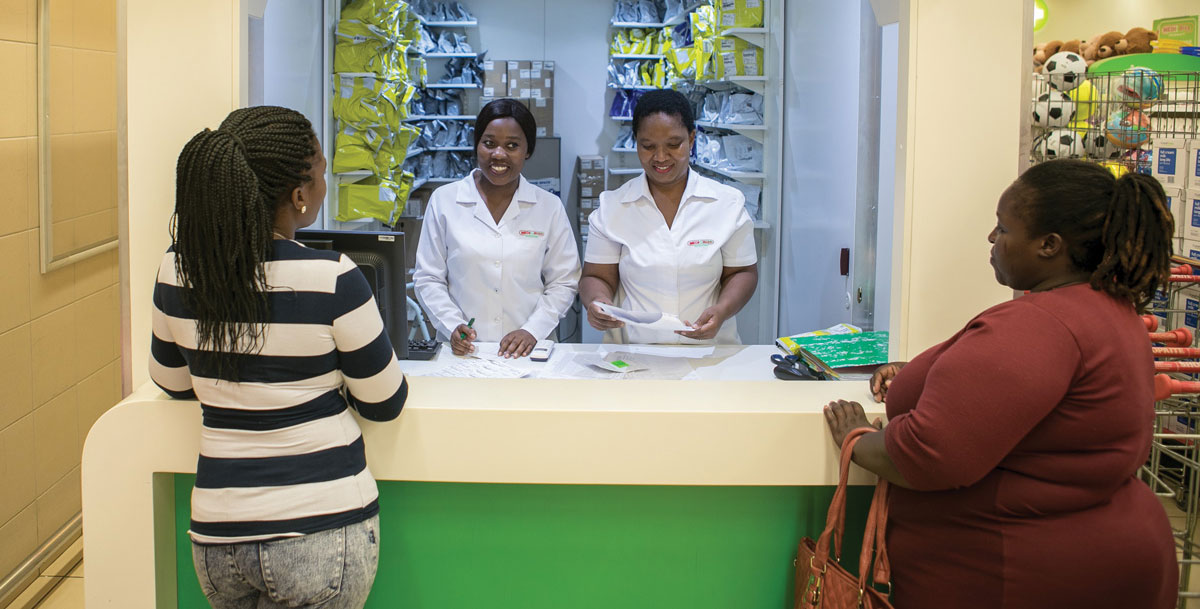We are a global business that operates on a local scale, in every community where we do business.
We are able to create global reach with a local focus because of the strength of the Coca‑Cola supply chain, which comprises our company and our bottling partners worldwide.
While many view our company as simply "Coca‑Cola," our system operates through multiple local channels. The primary way that our products reach the marketplace starts with Coca‑Cola, which manufactures and sells concentrates, beverage bases and syrups to bottling operations. Coca‑Cola also owns the brands and is responsible for consumer brand marketing initiatives. Our Coca‑Cola bottling partners manufacture, package, merchandise and distribute final branded beverages to our customers and vending partners, who then sell our products to consumers.
All bottling partners work closely with customers – grocery stores, restaurants, street vendors, convenience stores, movie theaters and amusement parks, among many others – to execute localized strategies developed in partnership with our company. Customers then sell our products to consumers at a rate of 2.2 billion servings a day.
How We Operate
The Coca‑Cola Company markets, manufactures and sells:
- Beverage concentrates and syrups; and,
- Finished beverages (including sparkling soft drinks; water, sports, coffee & tea; juice, value-added dairy & plant-based beverages; and emerging beverages).
-no%20footnote.png)
In our concentrate operations, The Coca‑Cola Company typically generates net operating revenues by selling concentrates and syrups to authorized bottling partners.
Our bottling partners combine the concentrates with still and/or sparkling water, and/or sweeteners, depending on the product, to prepare, package, sell and distribute finished beverages.
Our finished product operations consist primarily of company-owned or -controlled bottling, sales and distribution operations.
Bottling Investments Group
Our current footprint of bottlers exists in South East and South West Asia and parts of Africa. We continue to drive strong performance within BIG while maximizing the returns on our investments. We continue to aspire to be the world’s smallest bottler by looking for the right partner, at the right time, with the right value proposition.
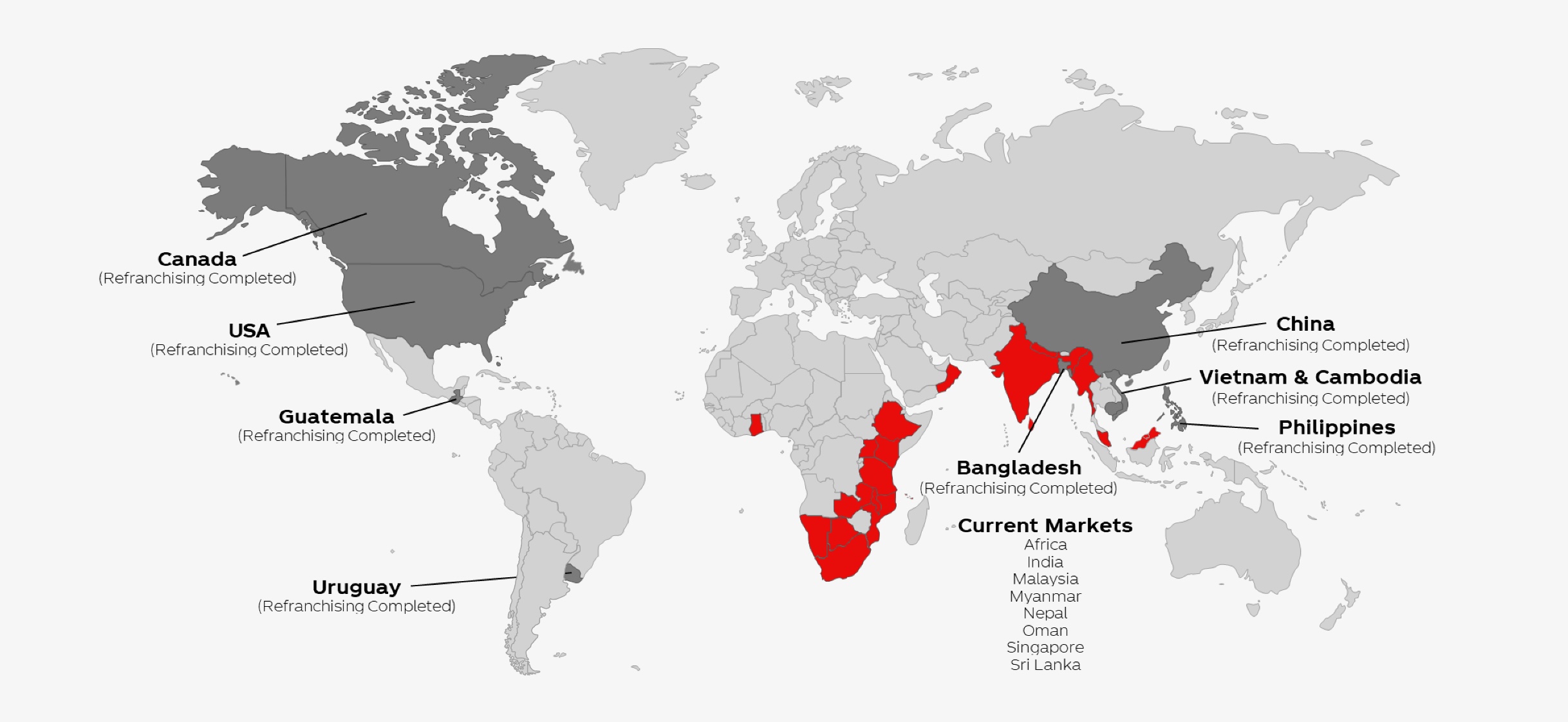
Bottling Partners
Atlas Bottling Company
BGI Castel
Bonite Bottlers
Coca‑Cola Beverages Africa
Coca‑Cola HBC
DAL Group
Delta Corporation Limited
Equatorial CCBC
Etablissements S A Coubeche
Forbes Group
Heineken
Hyper Psaro Group
Ka-Mur Beverages Services Limited
Phoenix Camp Minerals
Schweppes Holdings Africa Ltd
Shah Group
Société Des Boissons Gazeuses Du Souss
Somaliland Beverage Industries
The Coca‑Cola Bottling Co. Of Egypt S.A.E.
United Bottling Company
Carlsberg Breweries
Coca‑Cola Bottling Shqiperia sh.p.k. (Albania)
Coca‑Cola Europacific Partners
SIBEG SRL
The General Soft Drinks Co., Ltd. (Malta)
Coca‑Cola Beverages Korea
Coca‑Cola Bottlers Japan Holdings,Inc.
Hokkaido Coca‑Cola Bottling Co., Ltd.
Hokuriku Coca‑Cola Bottling Co., Ltd
Michinoku Coca‑Cola Bottling Co., Ltd.
Okinawa Coca‑Cola Bottling Co., Ltd.
BIG TCCC
Brasserie de Tahiti
Capelle & Partner
Coca‑Cola Europacific Partners
Haad Thip, Ltd
Samoa Breweries
Societe Le Froid
ThaiNamthip Limited
Vanuatu Beverages (owned by Societe Le Froid)
COFCO Coca‑Cola Beverages Ltd
Macau Coca‑Cola Beverage Company Ltd
MCS Coca‑Cola LLC
Swire Coca‑Cola Ltd
ABI Honduras (Cervecería Hondureña)
Arca Continental, S.A.B. de C.V.
Bandeirantes
Banks DIH Limited (Guyana)
Bebidas Refrescantes de Nogales S.A. de C.V.
BEPENSA Bebidas
Bowen & Bowen Ltd (Belize)
Brasal
Brasserie de la Couronne (Haiti)
Caribbean Bottling Co
Cervecceria Centroamericana Group
Coca‑Cola Andina
COCA-COLA EMBONOR S.A.
Corporacion del Fuerte
Curacao Beverage Bottling Co. (Curacao)
CVI
Du Boulay Bottling Company
EmbotChilenas Unidas SA
Embotelladora De Colima S A De C V
Embotelladora Las Margaritas S.A. de C.V.
Fernandes Group (Suriname)
French West Indies (Martinique + Guadalupe + French Guiana)
Grupo Embotellador Nayar
Grupo Simoes
Josephine Gabriel & Co. Ltd. (Dominica)
Jugos del Valle S.A.P.I. de C.V.
KO South Caribbean Bottler
Mariposa Big Blue
Nudelpa
Reginald Lee S.A
SOLAR
Sorocaba Refrescos
Tropical Bottling Company of Aruba
Uberlândia Refrescos
Wisynco Group Limited (Jamaica)
Al Ahlia-Gulf Line General Trading Company LLC
Al Mana Trading Company
Aujan Coca‑Cola Beverages Company
CCBC of Saudi Arabia
Coca‑Cola Bottlers Georgia Ltd.
Coca‑Cola Bottlers Uzbekistan Ltd.
Coca‑Cola Bottling Company of Bahrain
Coca‑Cola HBC
Coca‑Cola Icecek
Cypri Cola Ltd
Habib Gulzar Internationa LLC
Khoshgovar
National Beverage Company - Coca‑Cola/ Cappy
Refreshment Trading Co
Sanaa Beverage Company Limited
The Central Bottling Co. Ltd.
Abdul Monem Ltd.
Bengal Beverages
Bhutan Beverages Co Ltd
Diamond Beverages Pvt Ltd.
Enrich
Hindustan Coca‑Cola Beverages Ltd
Kandhari Beverages Ltd
Ludhiana Beverages Pvt. Ltd
Male' Aerated Water Company
Moon Beverages
SLMG Beverages Private Ltd
Sri Sarvaraya Sugars Ltd
Superior Drinks
Udaipur Beverages Ltd
Wave Beverages Ltd
ABARTA Coca‑Cola Beverages, LLC
Aberdeen Coca‑Cola Bottling Company
Ada Coca‑Cola Bottling Company
Atlantic Bottling Company
Binks Coca‑Cola Bottling Company
Canyon City Coca‑Cola Bottling Company
CCBC of Hot Springs
CCBC of International Falls
CCBC of Yakima & Tri-Cities
Cedar City Coca‑Cola Bottling Company
Chesterman Company
Clark Beverage Group, Inc.
Coca‑Cola Beverages Florida
Coca‑Cola Beverages Northeast
Coca‑Cola Bottling Company High Country
Coca‑Cola Bottling Company of Bemidji
Coca‑Cola Bottling Company of Columbus
Coca‑Cola Bottling Company of Dickinson
Coca‑Cola Bottling Company of Fort Smith
Coca‑Cola Bottling Company of Glasgow
Coca‑Cola Bottling Company of Kokomo
Coca‑Cola Bottling Company of Nashville
Coca‑Cola Bottling Company of Santa Fe
Coca‑Cola Bottling Company of Williston
Coca‑Cola Bottling Company of Winfield
Coca‑Cola Bottling Company of Winona
Coca‑Cola Bottling Company UNITED
Coca‑Cola Bottling of Emporia
Coca‑Cola Bottling of Minden
Coca‑Cola Bottling Works of Pulaski
Coca‑Cola Canada Bottling Limited
Coca‑Cola Consolidated, Inc.
Coca‑Cola Puerto Rico Bottlers
Coca‑Cola Southwest Beverages
Corinth Coca‑Cola Bottling Works
Decatur Coca‑Cola Bottling Company
Deming Coca‑Cola Bottling Company
Durango Coca‑Cola Bottling Company
Durham Coca‑Cola Bottling Company
Hancock Bottling Company
Heartland Coca‑Cola Bottling Company
Huntsville Coca‑Cola Bottling Company
Idabel Coca‑Cola Bottling Company
Jefferson City CCBC
Ketchikan Soda Works
Lehrkinds Coca‑Cola
Liberty Coca‑Cola Beverages
Love Bottling Company
Lufkin Coca‑Cola Bottling Company
Macon Coca‑Cola Bottling Company
Magnolia Coca‑Cola Bottling Company
Maui Soda & Ice Works
Meridian Coca‑Cola Bottling Company
Middlesboro Coca‑Cola Bottling Works
Mile High Beverages
Orangeburg Coca‑Cola Bottling Company
Ozarks Coca‑Cola Bottling Company
Reyes Coca‑Cola Bottling
Rock Hill Coca‑Cola Bottling Company
Sitka Bottling Company
Swire Coca‑Cola, USA
The Odom Corporation
Timber Country Coca‑Cola Beverages
Trenton Coca‑Cola Bottling Company
Union City Coca‑Cola Bottling Company
Viking Coca‑Cola Bottling Company
